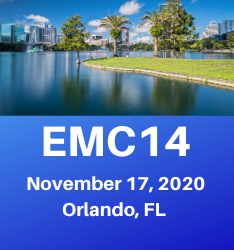|
|
|
|
|
Regulator Proposes New, Separate "RPS" Bond Requirement For Retail Suppliers, In Lieu Of More Frequent RPS Compliance Showings
The following story is brought free of charge to readers by EC Infosystems, the exclusive EDI provider of EnergyChoiceMatters.com
The Connecticut PURA has issued a proposal that would impose a new, separate bond requirement on retail electric suppliers, to address RPS obligations, in lieu of proposals for more frequent RPS compliance showings
Both measures are meant to decrease the risk of defaulting suppliers exiting the market with unpaid RPS obligations
Under the new proposals, the new, separate RPS bond would reflect the amount of the supplier's previous calendar year maximum alternative compliance payment (ACP)
New suppliers would be required to maintain an RPS bond in the amount of $25,000
This bond would be in addition to and separate from the bond required by the supplier licensing regulations and its costs would directly correlate with a supplier’s total load served
A proposed regulation states, "All electric suppliers shall maintain a separate renewable energy portfolio standards bond with the Public Utilities Regulatory Authority equal to the full alternative compliance payment that would have been due for the electric supplier’s full load served the previous calendar year. A newly licensed supplier shall maintain a renewable portfolio standards bond the greater of $25,000 or an amount equal to the full alternative compliance payment for the supplier’s projected load for the first year of operations."
Suppliers would be required to submit a revised bond if the full alternative compliance payment that would have been due for the electric supplier’s full load served the previous calendar year exceeds the bond on file by ten percent (10%).
PURA said of its latest proposal: "This proposal continues the frequency of annual compliance and, as supported by stakeholders, increases financial security to assure RPS compliance. Moving forward, an RPS bond requirement would be established for all licensed suppliers and would reflect the amount of the previous calendar year’s maximum alternative compliance payment (ACP); new suppliers would be required to maintain a bond in the amount of $25,000 or an amount equal to the full alternative compliance payment for the supplier’s projected load for the first year of operations, whichever is greater. This bond would be in addition to and separate from the bond required by the supplier licensing regulations and its costs would directly correlate with a supplier’s total load served. The RPS bonding requirement would apply to third-party suppliers providing generation supply directly to customers and would not apply to suppliers providing standard service to the electric distribution companies (EDC), as the EDCs are ultimately responsible for the RPS compliance of standard service and institute their own bonding requirements in their contracts with standard service suppliers. The Authority recognizes this bond requirement is greater than previous bond requirements, but if the Authority chooses to forego more frequent RPS compliance it must institute a bond sufficiently large to ensure a supplier’s financial insolvency does not prevent it from fulfilling its Connecticut RPS obligations."
The proposed regulations also alter the timing and content of submissions. PURA said that the EDCs have indicated previously in this docket that the final load settlement data is available within 120 days after the load is served; therefore, the proposal requires the EDCs to provide the final load settlement data to the Authority annually on or before May 15. Suppliers will be required to rely upon the load settlement data submitted into the docket by the EDCs to populate their Annual RPS Compliance Reports.
PURA further warned suppliers about providing inaccurate load data.
"The Authority notes that currently some suppliers do not provide accurate load data or computations in their Compliance Reports. This practice will no longer be tolerated. Suppliers or EDCs providing incorrect and/or inaccurate information on Compliance Reports, not providing required supporting documentation from NEPOOL-GIS, or not providing a bond in the correct amount will be subject to penalties, including but not limited to the imposition of the Alternative Compliance Payment corresponding to the RPS obligation for which the incorrect and/or accurate information was provided," PURA said
"The Authority will no longer accept or review requests from suppliers for reallocation of RECs into or out of Connecticut NEPOOL-GIS accounts and/or subaccounts. Suppliers are expected to independently manage their accounts throughout the year. Furthermore, the Authority will no longer accommodate banking with regard to RPS compliance and will not track certificates that are settled in excess of RPS compliance. These changes will simplify the reporting process, thereby reducing the complexity of RPS compliance for suppliers," PURA said in the proposal
"Presently, the Authority will continue to have suppliers file the Compliance Report for approval before submitting the ACP to the EDCs or the Connecticut Green Bank. Once parties become more familiar with the new RPS procedure, the Authority will consider having suppliers pay the ACP at the same time they file the Compliance Report. Any such future changes would be noted in the notice of proceeding for the RPS docket and in the Compliance Report for that reporting year, and therefore are not addressed in the regulations," PURA said in the proposal
Docket 19-10-26
ADVERTISEMENT Copyright 2010-20 Energy Choice Matters. If you wish to share this story, please
email or post the website link; unauthorized copying, retransmission, or republication
prohibited.
May 27, 2020
Email This Story
Copyright 2010-20 EnergyChoiceMatters.com
Reporting by Paul Ring • ring@energychoicematters.com
NEW Jobs on RetailEnergyJobs.com:
• NEW! --
Pricing Analyst -- Houston
• NEW! -- Senior Energy Intelligence Analyst -- Energy Procurement
• NEW! -- Channel Partner Sales Manager -- Retail Supplier
• NEW! -- Energy Procurement Manager
• NEW! -- Channel Relations Manager -- Retail Supplier
|
|
|
|








